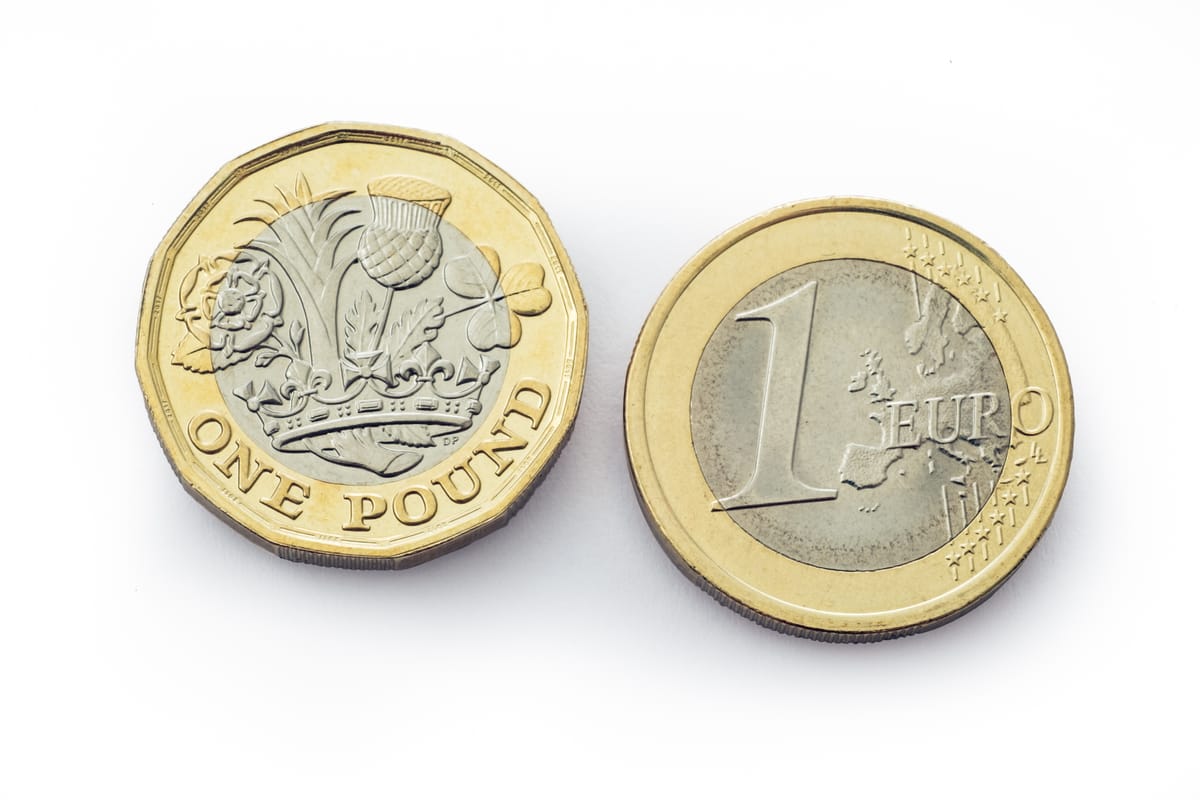GBP/EUR exchange rate midweek update: pound falls from multi-month high versus euro
11/11/2024 to 13/11/2024: The pound euro (GBP/EUR) exchange rate was propelled to a multi-month high by 'Trump trade' before being toppled by a lacklustre UK jobs report.

Monday
The pound euro (GBP/EUR) exchange rate edged above the €1.21 benchmark, touching its highest level since April 2022, despite an empty data docket on both sides.
Its gains were fuelled by ‘Trump trade’ after the president-elect’s decisive victory provided him with a stronger mandate to pursue his proposed policies.
The Republican Party's sweep of both houses of Congress led investors to take flight from the euro amid Trump’s determination to raise import tariffs – a move that could damage the Eurozone economy given its significant goods export base. In contrast, the UK economy is underpinned by services exportation, which typically falls beyond the scope of tariffs.
Tuesday
The pound nosedived from its multi-month high against the euro following the release of data reporting that UK unemployment rose as pay growth slowed again.
In the three months to September, the rate of unemployment was up to 4.3% from 4% in the second quarter. However, issues with how the Office for National Statistics (ONS) gathers the data softened the pound’s fall.
Wage growth slowed in the same period but pay is still rising faster than inflation. Excluding bonuses, wages grew at an annual rate of 4.8% in the third quarter – the lowest in more than two years. The number of vacancies declined again, extending a downward run that has lasted more than two years.
The single currency was undermined by lacklustre economic data from Germany and the wider bloc.
German business sentiment deteriorated in November, according to the headline ZEW investor expectations index, which dropped to 7.4 from 13.1 in October, well below expectations for a reading of 12.8.
It was a similar story in the Eurozone, with the ZEW economic sentiment index printing at 12.5 in November versus the October figure of 20.1, well short of forecasts for a reading of 20.5.
Wednesday
The pound’s sharp fall was broken by hawkish comments from Bank of England (BoE) official Catherine Mann that dampened expectations of further interest rate cuts. The policymaker believes high inflation remains persistent and is more likely to overshoot than undershoot central bank forecasts.
Mann was the only member of the BoE's nine-strong Monetary Policy Committee to vote against lowering borrowing costs last week.
However, her remarks couldn’t prevent the pound euro rate from dropping to a one-week low around €1.1985.
Looking ahead
GDP readings from the Eurozone and the UK hit the headlines on Thursday and Friday respectively.
If, as expected, the Eurozone economy remained stagnant in the third quarter, the single currency could be undermined. A mixed print is forecast for the UK economy during the same period.
A string of speeches from central bank rate-setters on both sides will be closely monitored by investors for clues about the pace of future policy loosening.
